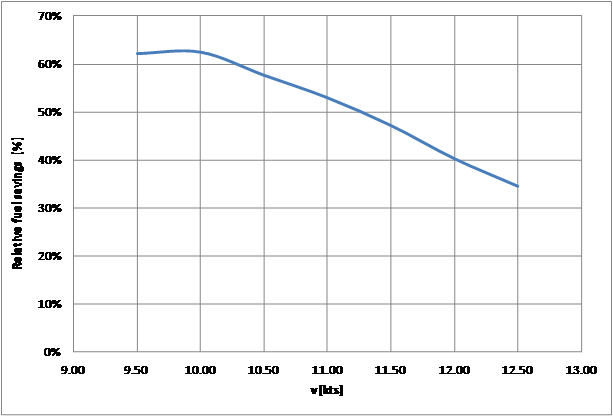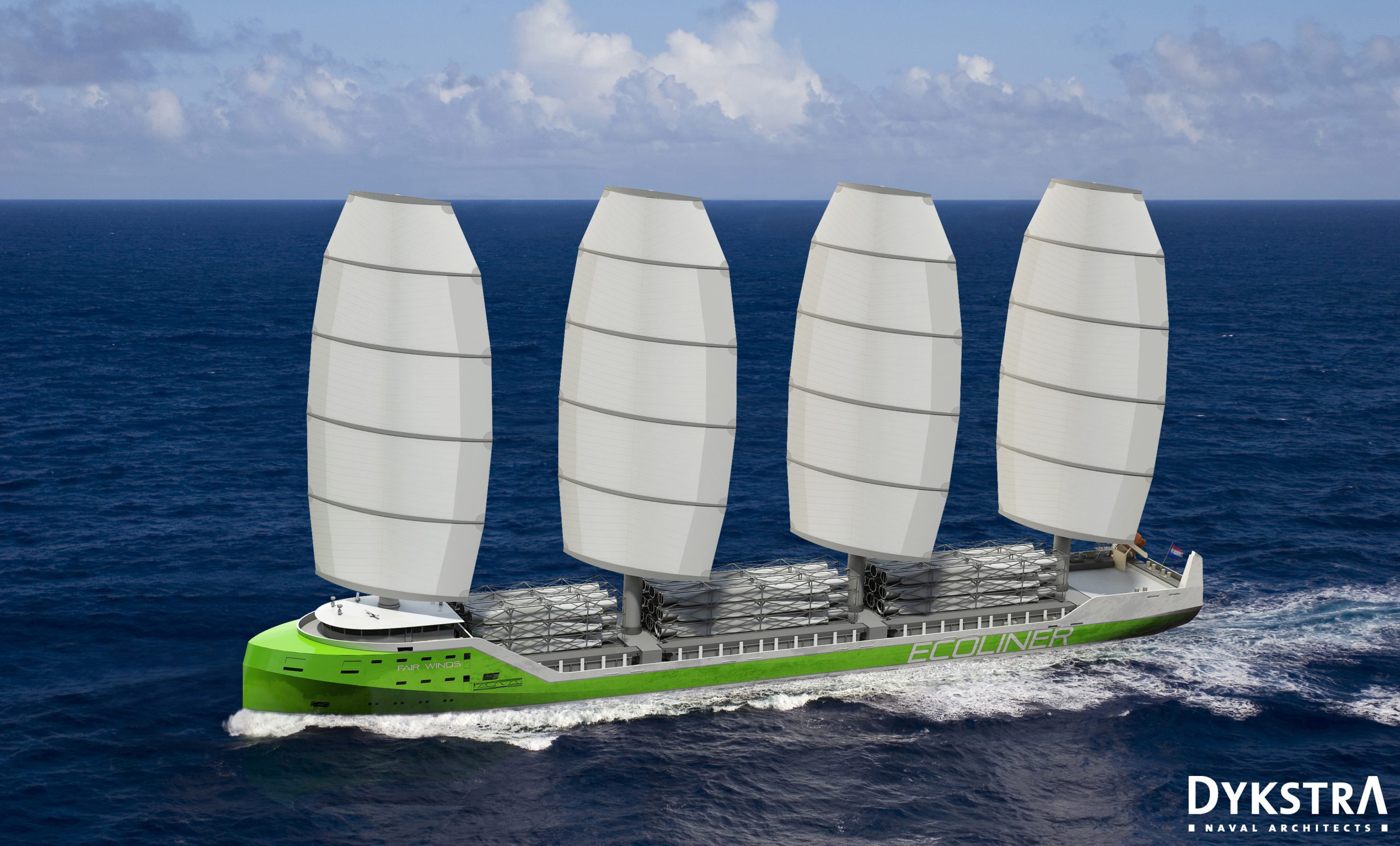The Ecoliner is a sail-assisted cargoship under design at Dykstra naval architects. Master student Emiel Mobron optimised the hull for motorsailing.
Some forty thousand cargo ships carry 90 percent of the stuff we transport the world over, emitting a billion tonnes of CO2 per year along the way (3-4 percent of global total) and enormous quantities of sulphur- and nitrous oxide. More stringent environmental demands, progressing global warming and mounting fuel prices are the main drivers behind efforts to reduce shipping fuel consumption. One of the options on offer are sail-assisted ships, be it with rotors (E-Ship 1, 2010), a huge kite at the bow (SkySails, 2007) or the four-mast Ecoliner from Dykstra naval architects – a design that is powered by the same DynaRig they equipped the superyacht Maltese Falcon with.
During his master thesis research, Emiel Mobron calculated the effect that the four DynaRig masts (4.000 metre square) would have on a large cargo hull (138 metre long, 18 metre wide, 6,5 metre deep and 8.200 tonnes of cargo capacity). The main problem was that the centre of the counterforce against the windpressure was located far in front of the ship’s bow. This means that the ship would have a strong tendency to steer into the wind. “It also explains why 19th century clippers had jib sails attached to the bowsprit” says Prof. Hans Hopman (3mE) who supervised Mobron’s work. “The jib would compensate the windward tendency of the ship.”
By toying with the hull shape and calculating the effect with CFD software (computational fluid dynamics), Mobron found out that a large skeg under the rear of the ship (in front of the rudder) would bring the centre of lateral force more to the aft. So does relocating the centre of buoyancy of the ship. In all, these measures would improve the ship’s yaw and its sail ability.
 Savings
SavingsSavings
In addition, Mobron did a comparison in shipping costs between the Ecoliner and a conventional freighter of comparable size for a clockwise Atlantic roundtrip (Rotterdam, Portugal, Caribe, US Eastcoast, Rotterdam) at an average speed of 12 knots (22 km/hr). Under these conditions, the Ecoliner’s fuel consumption was 40 percent lower. At higher building costs and current fuel prices, the total shipping cost (euro/tonne mile) came out 11 percent lower.
Dykstra naval architects says Mobron’s findings will be used to improve the design. Besides, the design will be optimized for the ship’s purpose (freight and route). So far however, no Ecoliner has yet been ordered.
–> Emiel Mobron, Improving the performance of a Sail-assisted Cargo Vessel, thesis supervisor Prof. Hans Hopman, defense 19 June 2014.



Comments are closed.